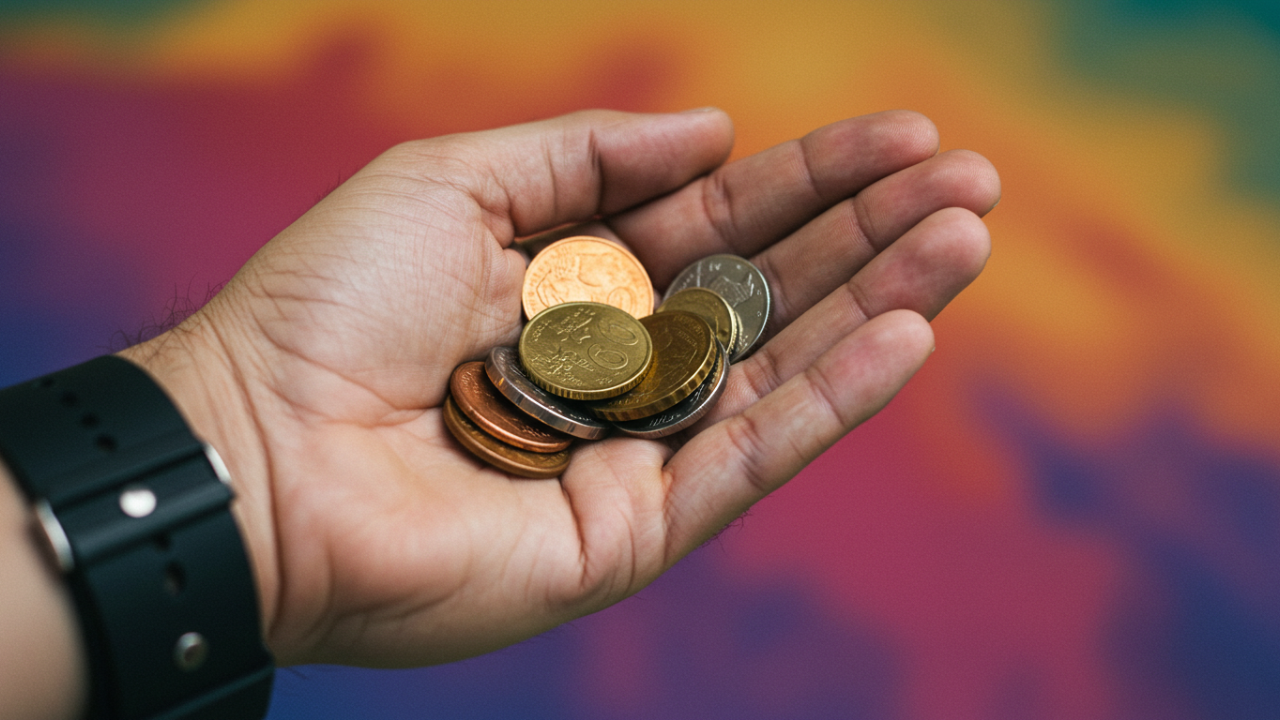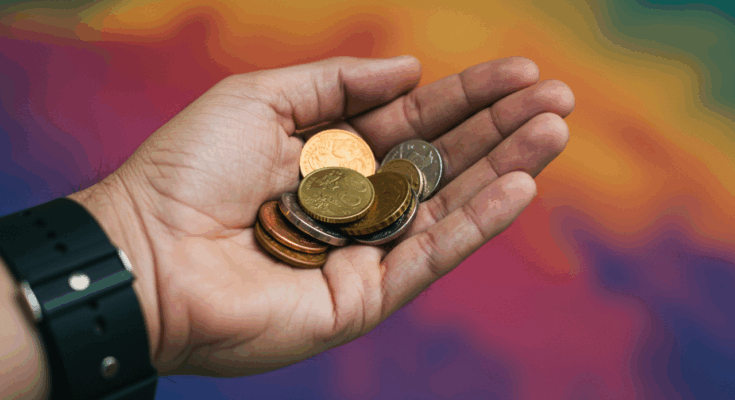Money isn’t just currency—it’s a mirror reflecting our deepest values, fears, and aspirations. Your relationship with money shapes every financial decision, from daily coffee runs to long-term investments, often subconsciously. In 2025, with economic pressures mounting, understanding this dynamic is more crucial than ever. Surveys reveal that 87% of Americans experience financial anxiety, a sharp rise this year, disrupting sleep for 77% and straining relationships for 67%. This isn’t mere worry; it’s a symptom of deeper mindsets formed over years. But the good news? Like any relationship, this one can be nurtured and improved. This article delves into the psychology behind your money ties, offers self-assessment tools, and provides actionable steps to foster a healthier bond. We’ll answer questions like “How does my past influence my spending?” and “Can changing my mindset really boost my wealth?” with insights drawn from recent trends and practical advice. By the end, you’ll have a clearer path to financial empowerment, reducing stress and aligning money with your life’s true priorities.
The Foundations of Your Money Relationship
How Early Experiences Form Your Money Script
Your money relationship often begins in childhood, scripted by family dynamics and observed behaviors. Did your parents argue over bills, instilling a sense of scarcity? Or did they model generous giving, promoting abundance? These “money scripts”—unconscious beliefs—dictate adult habits. A 2025 survey highlights that 56% of people link their financial attitudes to parental influences, with many carrying forward limiting views like “money causes conflict.”
To uncover yours, reflect on pivotal moments: Your first allowance, a family financial crisis, or witnessing a windfall. Journal these: “What emotions did money evoke then?” This exercise reveals patterns, like avoiding investments due to a parent’s stock loss story. Understanding this foundation answers “Why do I sabotage my savings?”—often, it’s echoes from the past overriding logic.

Cultural and Societal Influences
Beyond family, society molds our money views. In the U.S., where consumerism drives the economy, messages like “success equals stuff” prevail. Yet, a Northwestern Mutual study found 69% of Americans feel depressed or anxious from financial uncertainty, up 8% from 2023, tying into cultural pressures to “keep up.” Globally, only 29% feel hopeful about finances, with 56% worried about inflation.
Examine media intake: Do ads fuel wants, or do you seek balanced views? Cultural norms vary—some societies value communal wealth, reducing individual stress. Actionable: Audit your influences weekly, curating content that promotes healthy attitudes, like podcasts on mindful finance.
Assessing Your Current Money Mindset
Self-Assessment Tools and Exercises
To improve, first evaluate. Try a money mindset quiz: Rate statements like “I deserve financial success” on a 1-10 scale. Scores below 5 signal limiting beliefs. A 2025 Pew survey shows 28% expect worsening finances, reflecting pessimistic mindsets.
Track emotional responses: Note feelings during bill-paying or paycheck receipt. Anxiety? Track for a month to spot triggers. Another tool: The “money autobiography”—write your financial life story, identifying recurring themes. This answers “Am I in a toxic money relationship?” by highlighting avoidance or obsession patterns.
Signs of Healthy vs. Unhealthy Dynamics
A healthy relationship means money serves you—peaceful budgeting, guilt-free spending on values. Signs: Consistent saving (20% income ideal), informed decisions without fear. Unhealthy? Chronic stress, with 52% worrying daily per Ramsey’s Q2 2025 report. Avoidance (ignoring statements) or compulsion (overspending for validation) indicate issues.
Compare: Healthy folks view setbacks as lessons; unhealthy see them as failures. If money dictates mood, it’s time for change. Insight: 43% say money negatively impacts mental health, causing anxiety or depression. Recognizing signs empowers proactive shifts.
The Impact of Money Beliefs
Common Limiting Beliefs Revealed in Surveys
Limiting beliefs sabotage riches. Surveys identify top ones: “Money is hard to obtain” (common among 40% in mindset studies), leading to under-earning. “Wealthy people are selfish” fosters guilt, blocking ambition. A Forbes analysis notes scarcity mindset as prevalent, believing resources are finite, causing hoarding or fear.
Impacts: These beliefs correlate with higher debt—those with “I’m not good with money” scripts average 20% more consumer debt. In relationships, 24% cite shared accounts as trouble sources, stemming from trust issues. Question addressed: “How do beliefs affect wealth?” They shape actions; scarcity leads to missed opportunities, like skipping investments.
Positive Beliefs and Their Benefits
Conversely, empowering beliefs like “Money flows when I add value” drive proactive behaviors. A Schwab survey shows Americans now need more for comfort, but optimists (60% per Ramsey) achieve goals faster.
Benefits: Lower stress, better decisions. Those with abundance views save 15% more annually. In friendships, Ally Bank’s 2025 poll reveals hidden costs, but positive mindsets foster open talks, reducing isolation.
Strategies to Improve Your Money Relationship
Rewiring Limiting Beliefs Through Affirmations and Education
Challenge beliefs with evidence. For “Money is evil,” list positive uses like charity. Daily affirmations: “I manage money wisely.” A Medium guide suggests rewiring via mindfulness, tracking thoughts to replace negatives.
Educate: Read one finance book quarterly. Surveys show knowledge reduces anxiety—72% of young adults adjust habits amid costs. Action: Pair affirmations with actions, like budgeting sessions, to reinforce.
Building Healthy Financial Habits
Habits solidify mindsets. Start budgeting: 50/30/20 rule. Track spending to visualize progress. Bank of America advises mindfulness—think “How does this feel?” before buys.
Joint accounts in marriages? 7 tips from Ramsey: Communicate openly to build trust. For singles, visualize success daily. This answers “How do habits change mindsets?”—Consistency creates proof, shifting beliefs.
Seeking Support and Professional Guidance
Don’t go alone. Join communities or therapy. Financial well-being reports show 44% cut non-essentials, but support accelerates. Coaches help rewrite scripts.
In workplaces, stress costs $3,922 per employee yearly—advocate for wellness programs. Tip: Free resources like Wespath’s tools assess relationships.
Navigating Money in Relationships and Society
Money and Romantic Partnerships
Surveys show money trumps love for 46% of Gen Z in stability choices. USA TODAY readers split on priorities, but open talks prevent arguments. Action: Monthly money dates to align goals.
Broader Societal Ties
In 2025, 32% of young adults receive less parental aid, shifting independence. NEFE’s analysis notes stable well-being scores, but individual mindsets vary. Engage positively: Volunteer financially to reframe giving.
A healthy money relationship yields liberation—less stress, more joy. As Yahoo’s poll notes, anxiety surges, but mindset shifts counter it. Commit today; your future self thanks you.
FAQ
How do I know if my money relationship is unhealthy?
Look for chronic anxiety or avoidance. If 43% report mental health impacts, assess via journaling emotional triggers.
Can childhood beliefs really be changed?
Yes—through reflection and new experiences. Surveys show many rewrite scripts successfully with education.
What’s the link between money mindset and wealth?
Positive beliefs lead to better habits; scarcity ones hinder growth, as seen in debt patterns.
Should couples discuss money early?
Absolutely—24% face issues from mismatched views; early talks build trust.
How does society influence my money views?
Media and norms promote consumerism; curate intake to foster abundance, reducing the 87% anxiety rate.



